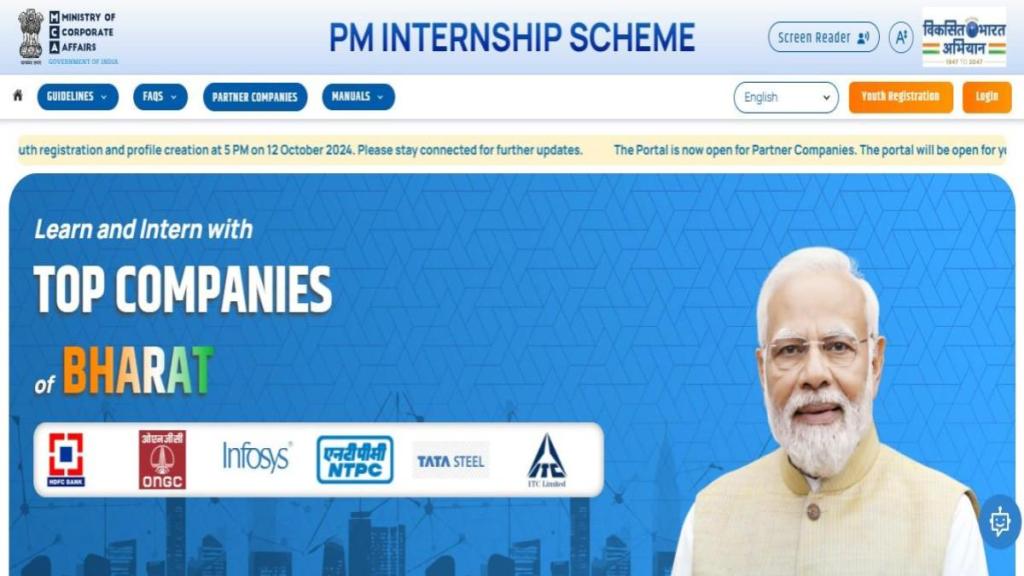The registration for the Prime Minister’s Internship Scheme closed on Sunday with 127,046 offers being made by 280 companies — more than the target of 125,000 set for the pilot phase.
According to official data, more than 250,000 applications, nearly double the offers, have been approved among multiples of that received on the dedicated portal, for the skilling opportunities, intended to make the youth employable and get them access to remunerative jobs.
The firms that have posted offers on the portal include Reliance Industries, Adani Group, TCS, ITC, Maruti Suzuki India, Mahindra & Mahindra, Larsen & Toubro, Jubilant FoodWorks, Eicher Motors, and Muthoot Finance.
While the scheme is designed to train 10 million youngsters over a five-year period, a target was set to provide 125,000 internship opportunities across 24 sectors such as oil & gas, energy, travel, automotive, and banking and financial services in the pilot phase.
An official said the ministry of corporate affairs (MCA) will soon start the selection process and the internships at the company level will begin on December 2. According to the plan, the interns will be working with companies for 12 months, when they will learn real-life business skills, and receive a monthly stipend of Rs 5,000. Out of this, Rs 500 will be contributed by the participating companies subject to attendance and conduct of the intern. The remaining Rs 4,500 will be provided by the government via direct benefit transfer to an intern’s Aadhaar-seeded bank account.
It is envisaged that top 500 companies —based on their average corporate social responsibility (CSR) expenditure over the last three years — would participate in the scheme voluntarily. However, other companies, banks or financial institutions can also participate with approval from the MCA, especially if they represent under-represented sectors.
In addition, if a participating company cannot provide internship opportunities directly, it can collaborate with companies in its forward and backward supply chains (such as suppliers, customers, vendors) to provide such opportunities.
The scheme allows for the firms to offset the training and administrative costs associated with the scheme from their CSR funds.
Announced in the Union Budget for 2024-25, the scheme kicked off on October 3.


